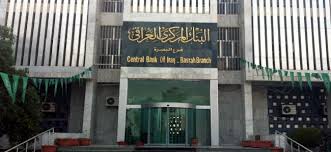Gulf-American statement directs a strict request to Iraq
 A joint statement issued by the Gulf Cooperation Council and the United States on Thursday called on Iraq to fully demarcate the maritime borders between the two countries after point 162, and called on the Iraqi government to ensure that the 2012 agreement regulating navigation in Khor Abdullah remains in effect.
A joint statement issued by the Gulf Cooperation Council and the United States on Thursday called on Iraq to fully demarcate the maritime borders between the two countries after point 162, and called on the Iraqi government to ensure that the 2012 agreement regulating navigation in Khor Abdullah remains in effect.
This came after US Secretary of State Antony Blinken met in New York with Sheikh Mohammed bin Abdulrahman Al Thani, Qatari Minister of Foreign Affairs and current Chairman of the GCC Ministerial Council, in addition to the foreign ministers of the GCC member states and the Secretary-General of the Council, Jassim Mohammed Al-Badawi .
According to the statement, the ministers referred to the decisions of their meeting on September 18, 2023, and stressed the importance of Iraq’s commitment to Kuwait’s sovereignty and territorial integrity and respect for international agreements and United Nations resolutions, especially Security Council Resolution No. 833 regarding the demarcation of the borders between Kuwait and Iraq .
They called for the full demarcation of the maritime borders between Kuwait and Iraq beyond border point 162, and called on the Iraqi government to ensure that the agreement between Kuwait and Iraq, concluded in 2012 to regulate maritime navigation in Khor Abdullah, remains in effect .
The Ministers expressed their support for Security Council Resolution 2732 (2024), which mandated the Secretary-General of the United Nations to facilitate progress towards resolving all outstanding issues between Iraq and Kuwait, including the return of all Kuwaiti and third-country nationals or their remains and the return of Kuwaiti property and the national archives .
The Ministers noted the important role that the United Nations is currently and in the future playing in implementing Security Council Resolution 1284 and ensuring continued progress towards resolving these issues, and called on Iraq to make every effort to reach a solution to all the issues concerned .
Shafaq.com


 A government source revealed, on Thursday, that Prime Minister Mohammed Shia al-Sudani issued directives related to financial and banking reforms, including not increasing the capital of banks subject to US sanctions.
A government source revealed, on Thursday, that Prime Minister Mohammed Shia al-Sudani issued directives related to financial and banking reforms, including not increasing the capital of banks subject to US sanctions. Prime Minister Mohammed Shia al-Sudani expressed, on Thursday, Iraq’s readiness to enter into a partnership with American companies in the oil industry sector, revealing at the same time his government’s intention to establish a new Iraqi bank.
Prime Minister Mohammed Shia al-Sudani expressed, on Thursday, Iraq’s readiness to enter into a partnership with American companies in the oil industry sector, revealing at the same time his government’s intention to establish a new Iraqi bank. MP Mustafa Sand revealed on Thursday that the Iraqi judiciary has verified the issue of the “wiretapping network” with conclusive evidence.
MP Mustafa Sand revealed on Thursday that the Iraqi judiciary has verified the issue of the “wiretapping network” with conclusive evidence. A member of the Iraqi parliament revealed, on Thursday, the existence of what he described as a “political veto” that obstructs the interrogation of ministers in the government of Mohammed Shia al-Sudani.
A member of the Iraqi parliament revealed, on Thursday, the existence of what he described as a “political veto” that obstructs the interrogation of ministers in the government of Mohammed Shia al-Sudani. A document from the Central Bank addressed to the Bank of Babylon stated that “based on the decision of the Board of Directors of the Central Bank No. 203 of 2024, the following was decided:
A document from the Central Bank addressed to the Bank of Babylon stated that “based on the decision of the Board of Directors of the Central Bank No. 203 of 2024, the following was decided: Rafidain Bank announced, on Wednesday, the total amounts of financial settlements related to electronic collection movements from state departments and institutions.
Rafidain Bank announced, on Wednesday, the total amounts of financial settlements related to electronic collection movements from state departments and institutions. On Wednesday, the Iraqi Integrity Commission and the Chinese Oversight Committee signed a memorandum of understanding in the field of combating corruption, pursuing wanted persons, and recovering assets.
On Wednesday, the Iraqi Integrity Commission and the Chinese Oversight Committee signed a memorandum of understanding in the field of combating corruption, pursuing wanted persons, and recovering assets. Shafaq News / The Central Bank of Iraq reduced, on Sunday, its reliance on the US dollar in commercial transactions, adding that the project to remove zeros in Iraq is under continuous review and study.
Shafaq News / The Central Bank of Iraq reduced, on Sunday, its reliance on the US dollar in commercial transactions, adding that the project to remove zeros in Iraq is under continuous review and study.